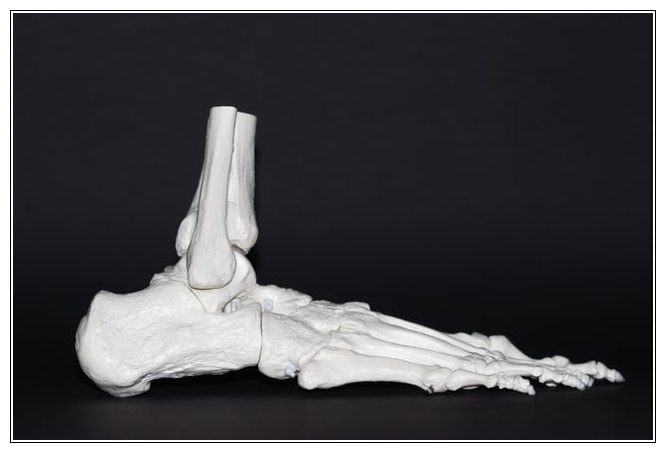-

Certified Dietary Manager (CDM)
WesleyLifeBettendorf, IABettendorf, IA- Full Time
-

Pharmacy Technician, Insitutional
SSM HealthRipon, WIRipon, WI- Full Time
-

Pharmacy Technician – Medication reconciliation
UCLA HealthLos Angeles, CALos Angeles, CA- Full Time
-

Pharmacy Technician
RWJBarnabas HealthNew Brunswick, NJNew Brunswick, NJ- Full Time
-

Pharmacy Technician
VG'SGenesee, MIGenesee, MI- Part Time
Orthopedic Jobs

As we age, certain limitations to our level of physical fitness start cropping up. Some injuries sustained during sports or similar activities can affect our physical abilities for life.
A branch of medicine known as orthopedics is dedicated to studying the musculoskeletal system (bones, muscles, tendons, ligaments, etc.). People interested in orthopedic jobs also have to show an enviable understanding of how to manage these systems in case of any damage.
If you have always been fascinated with the musculoskeletal system, then get ready, because you are about to embark on a ride to a fuller understanding of what it feels like to work as orthopedic personnel in the healthcare sector.
Orthopedic Jobs
What Do Orthopedists Do?
The work of an orthopedic doctor revolves around evaluating a patient’s unique musculoskeletal condition and offering the best treatment plans based on the diagnosis. These treatment plans may or may not include surgery.
An orthopedic doctor, otherwise known as an orthopedist, is responsible for diagnosing and treating all forms of musculoskeletal issues using both surgical and non-surgical procedures. Musculoskeletal problems can arise due to sports injuries, aging, birth defects, diseases, and accidents.
In a typical healthcare setting, you will often find an orthopedist working alongside and leading an orthopedic team that comprises a physician assistant, orthopedic nurse, physical therapists, and athletic trainers.
While some orthopedic doctors specialize in specific skeletal system areas, others choose to become general practice orthopedists. These specialties can include hip injuries, hand surgery jobs, arthritis, broken bones, or bone growth issues in children such as clubfeet.
It is common to find patients referring to all orthopedic doctors as surgeons. However, this is a misconception we would like to dispel. While all orthopedic surgeons are orthopedic specialists and can be referred to as orthopedic doctors (as they are qualified and licensed to diagnose and treat orthopedic patients and perform surgery on patients), not all orthopedic doctors can be referred to as orthopedic surgeons.
Performing orthopedic surgeries is a job reserved for orthopedic surgeons alone. In contrast, other orthopedic doctors are tasked with treating patients using non-surgical techniques such as physical therapy, medications, injections, lifestyle changes, etc. According to available orthopedic surgeon career information, up to 70% of all sports injuries can be effectively treated without surgery.
Orthopedics Job Duties
Aside from diagnosing and performing various surgeries on orthopedic patients, orthopedic surgeon job duties include the following:
- Determining if a patient’s condition requires surgery or not.
- Performing diagnostic imaging such as ultrasound, MRI scans, etc., and interpreting the results of the diagnostics.
- Working hand in hand with other health professionals (radiologists, physical therapists, nurses, etc.) during the patient treatment process.
- Performing follow-up exams on patients post-surgery.
- Monitoring patients’ response to orthopedic treatment and implementing adjustments where necessary.
- Prescribing medication to patients.
- Analyzing the medical record of a patient before proposing a treatment plan.
- Checking for degenerative bone conditions in patients using blood tests during diagnosis.
Types of Orthopedic Jobs
There are many different orthopedic job openings available to qualified individuals, depending on your level of education and medical training. Let’s take a look at some of the orthopedics career options available in the medical sector globally.
Orthopedic Surgeon Jobs
Being an orthopedic surgeon requires you to perform the roles of an orthopedic physician and more. Orthopedic surgeons are involved in all aspects of orthopedic treatment using medical, physical, rehabilitative, and surgical procedures.
Statistics on the orthopedic surgeon job market show that 50% of the orthopedic surgeons’ practice is devoted to non-surgical management of musculoskeletal issues, and the other 50% to surgical treatments. Just like orthopedic physicians, orthopedic surgeons are charged with leading a team of orthopedic professionals in a medical facility.
Orthopedic Physician Jobs
Orthopedic physician job description shows that their roles encompass all the duties of an orthopedic surgeon except performing surgery on patients. In cases where surgery is needed, an orthopedic physician will recommend an orthopedic surgeon to a patient for further treatment.
Orthopedic Physician Assistant Jobs
An orthopedic physician assistant (PA) is a member of the medical personnel who specializes in orthopedics and practices his/her trade under the supervision of an orthopedic surgeon or doctor.
Physician assistants are not allowed to perform surgery but can perform most of the other jobs done by orthopedic physicians and surgeons. PAs are also allowed to prescribe medications and perform basic medical procedures on patients with orthopedic needs in the absence of a doctor.
Physical Therapist Jobs
Orthopedic physical therapy jobs are an essential part of orthopedic treatments, irrespective of the condition the patient is suffering from. Most orthopedic injuries and diseases disrupt the normal function of the body mechanisms and will require expert help if the patient is to recover.
A physical therapist’s job is to help patients restore normal body functions after an injury, surgery, or a disease. They do so by developing treatment plans (that often involve physical activities) based on the patient’s condition and by working closely with each patient until the proper function of the affected body part is restored.
Cast Technician Jobs
These orthopedic technician jobs involve assisting orthopedic surgeons in applying and removing cast materials when dealing with patients with musculoskeletal conditions.
In the absence of an orthopedic doctor, a cast technician can also apply cast on a patient after studying their condition or if given the necessary information. Casts are made of plaster, bandages, or fiberglass, and are used to stabilize the damaged part of a body (usually broken bones) until healing is completed.
Orthopedic Nurse Jobs
Orthopedic nurses are trained to care for patients with musculoskeletal disorders. Their job often involves working alongside orthopedic doctors and having a good understanding of the human body’s muscular and skeletal system and how they work together.
Just like orthopedic doctors, orthopedic nurses can also choose to focus on subspecialties, such as pediatric orthopedic nursing, orthopedic trauma jobs, etc. Besides providing general orthopedic care to patients, pediatric orthopedic nurses specialize in caring for children with orthopedic conditions.
Aside from the popular careers in orthopedics mentioned above, there are also other specialties such as orthopedic sports medicine jobs, orthopedic technicians, and a few other.
Work Environment
Orthopedic physicians and surgeons can work in hospitals, private clinics, or university medical centers. The orthopedic work environment can sometimes be fast-paced but is mostly calm. Doctors spend most time consulting with patients to understand their condition, performing surgeries in the operating room, or carrying out non-surgical treatments.
Due to the rampant occurrence of musculoskeletal defects globally, orthopedic doctors typically work with many patients daily. This can sometimes lead to long hours in the office and emergency duties.
The orthopedic job description involves a lot of standing and non-stop work when in surgery, as taking a break could lead to patients suffering irreversible complications. Orthopedic surgeons typically have multiple orthopedic medical assistants to work with in the surgical room.
Injuries and Illnesses
The major health concern for orthopedists is burnout due to a heavy workload. In one study, 45% of orthopedic residents displayed a high level of emotional exhaustion (EE).
Work Schedules
Most jobs for orthopedic surgeons and physicians involve working long hours due to the overwhelming number of patients. While there are some orthopedic doctors working 9–5 shifts, working late hours or being placed on call in case of an emergency is common.
How to Become an Orthopedic Surgeon
To become an orthopedic physician or surgeon, you will need to spend up to 12 years obtaining one degree or certification after another.
Important Qualities
Aside from the skills needed to offer medical care to patients (even under pressure), people looking for jobs in orthopedics are also expected to have the following qualities:
- Commitment: Orthopedics is an ever-changing field with a heavy influx of new technologies that are making our lives better and the treatment processes more manageable. Physicians and surgeons must have an open mind and stay committed to furthering their knowledge of the innovations in orthopedics.
- Excellent communication and interpersonal skills: This will ensure that an orthopedist can get all the pertinent information from a patient.
- Excellent decision making: Orthopedic surgeon job outlook stats are the way they are because orthopedic surgery is a very delicate process. The surgeon has to have the skills to operate and the ability to adapt and make quick decisions during surgery in case of unforeseen changes in the health of a patient.
- Flexibility: Being flexible ensures that orthopedists can work shifts and remain on call (during off-hours) for emergencies.
- Good analytical, organizational, and problem-solving abilities: This will ensure the right type of medication is administered to patients after the analysis of their condition.
Education
Here is an outline of what your education will involve if you decide to embark on the orthopedic surgeon career path:
- First, you will need to earn a medicine-related bachelor’s degree or a degree in chemistry or biology.
- Secondly, you have to gain admission into an accredited medical school and graduate with a Doctor of Medicine or Doctor of Osteopathy degree. This typically takes 4 years.
- Following medical school, you will be required to enroll in a 5-year residency program to become an orthopedic doctor (general care physician or surgeon).
- The next step is to obtain your medical license after the completion of your residency program.
- To become an expert in a subspecialty such as pediatric orthopedics, or one of the other specialized ortho jobs, you will need to undergo additional training, which may take 1 or 2 years to complete.
Licenses, Certifications, and Registrations
Obtaining your medical license as an orthopedic doctor will require you to complete a 5-year residency program, after which you may or may not decide to get certified. Board certification is a means of proving your competency, skills, and knowledge in matters related to your specific orthopedic position and the duties that come with it.
It takes up to 2 years after your residency to complete the board certification program. You are required to get recertified every 7 to 10 years to maintain your certification with the appropriate board.
Advancement
One of the ways to advance the orthopedic surgeon career is by becoming a chief surgeon or chief of surgery at a hospital. The chief surgeon is responsible for supervising surgical procedures and for developing the orthopedic department’s policies and safe practices. The average salary of a chief surgeon is $454,302 per year—which is more than orthopedic surgeons typically make.
For orthopedic physicians, there is also the option of becoming a chief medical officer (CMO). Chief medical officers are responsible for the effective management of a medical center. Their job is to liaise between administrations in a medical center and develop policies that will ensure its smooth operation. Their roles extend to ensuring that both staff and patients are adequately cared for by the hospital management. The average salary of a chief medical officer is $293,120.
Surgeons can also advance their orthopedic careers by becoming neurosurgeons, also known as brain surgeons. A neurosurgeon examines and diagnoses injuries and disorders of the nervous system and performs surgeries on the brain, spinal cord, and peripheral nerves to treat these conditions. The average salary of a neurosurgeon is $599,283. To become a neurosurgeon, an orthopedic surgeon would need to complete five years of neurosurgery residency.
Pay
According to DegreeQuery, orthopedic surgery jobs are the third highest-earning medical specialty globally (after neurosurgery and invasive cardiology). The average salary of an orthopedic surgeon is $353,467.
While the top 10% make more than $561,088 annually, the bottom 10% make less than $117,927 per year.
Job Outlook
Reports from the Bureau of Labor Statistics show that the job outlook for all kinds of surgeons, including orthopedics surgeons, could rise 4% between 2019 and 2029. This is a result of an aging population, an increase in sports-related injuries, and the increasing need for surgeons in low-income areas.
Job Prospects
Those interested in this field should be confident in knowing that there is a huge potential for success and more than enough orthopedic surgeon job opportunities. While many will advance their careers by joining a group practice with professionals in related fields, others will choose to open a practice centre of their own.
Some, however, may decide to go into management or the education field by becoming professors after gaining the necessary work experience.
All of these options ensure that the number of orthopedic job prospects will continue to grow in the years to come.
FAQ
Is orthopedic surgery a good career?
These jobs, just like most of the other jobs in medicine, make an excellent career choice. Even more so if you are fascinated by how our body parts work in conjunction to keep us going. Plus, the average annual salary of $353,467 is a big advantage compared to what is attainable in some other professions.
How hard is orthopedic surgery?
Orthopedic surgeries involve delicate processes. Even the smallest mistake could permanently damage a patient’s body part, potentially even rendering it useless. It is no wonder that people looking for orthopedic surgeon jobs must go through more than a decade of education before they are allowed to actually treat patients.
Are orthopedic surgeons happy?
With an annual salary of $353,467, and the potential to earn up to $561,088 per year, it is safe to say that the job comes with an enviable amount of financial security. However, happiness does not depend on salary alone. As a matter of fact, long hours and demanding education are causing relatively high burnout rates, sleep deprivation, and other obvious signs of stress among surgeons and residents alike.
Conclusion
Orthopedic jobs are a great way to earn a decent living. The rigors of the demanding education might seem like too much to take, but every hour you invest in training and getting the needed certificates is going to pay off in the long term.